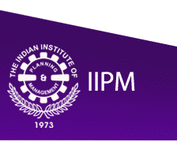Costa Coffee, founded in 1971 by Italian brothers Sergio and Bruno, is today the largest café chain in the U.K. and with operations in 28 countries it is the second-largest café chain in the world. Costa Coffee entered India in September 2005 with the opening of its first outlet in New Delhi. Since its launch, Costa Coffee has set new benchmarks in coffee retailing in the country. Over the last few years, Costa has created a distinct image for itself with its great coffee and food, friendly and efficient service and stylish and relaxing surroundings. Currently, Costa operates 95 cafés in India spread over Delhi-NCR, Jaipur, Agra, Mumbai, Bangalore and Pune.
What’s the USP of Costa Coffee compared to other biggies like Café Coffee Day, and Barista Lavazza?
While we may be smaller in terms of number of stores, we are the preferred coffee brand in the locations and cities we are present in. We were the first chain to offer an international brand experience in the coffee chain sector in India and enjoy the international brand recall and image advantage. Our coffee, we believe, is a great differentiator. Costa’s hand-crafted coffee, extracted from the Mocha-Italia blend, is today the preferred taste among coffee lovers around the world. A blind taste research conducted in the U.K. last year revealed that 7 out of 10 customers in the U.K. preferred the Costa Cappuccino over the other two leading brands. The other area of differentiation is that we offer the best-in-class range of café food in the country today. While being within the broad contours of Western café cuisine, our range of food is localized to suit the Indian taste profile.
With fewer stores than CCD or Barista, and hardly much marketing, how do you hope to beat the competition?
The coffee chain business is all about maintaining the brand standards, which in our case is very well defined and we deliver these values consistently. Costa’s coffee experience is based on delivering the perfect espresso-based drink combined with great coffee shop food served in a comfortable and chic environment. As long as we continue delivering to this statement, it will always keep us ahead of competition.
For more articles, Click on IIPM Article
Source : IIPM Editorial, 2012
An Initiative of IIPM, Malay Chaudhuri and Arindam chaudhuri (Renowned Management Guru and Economist).
For More IIPM Info, Visit below mentioned IIPM articles.
IIPM ranked No 1 B-School in India
domain-b.com : IIPM ranked ahead of IIMs
IIPM: Management Education India
Prof. Rajita Chaudhuri's Website
IIPM in sync with the best of the business world.......
Arindam Chaudhuri on Internet.....
Arindam Chaudhuri: We need Hazare's leadership
Professor Arindam Chaudhuri - A Man For The Society....
IIPM: Indian Institute of Planning and Management
Planman Technologies
IIPM Contact Info
IIPM History
IIPM Think Tank
IIPM Infrastructure
IIPM Info
IIPM: Selection Process
IIPM: Research and Publications
IIPM MBA Institute India
IIPM Best B School India
--------------------------------------------------------------------------------------------------------------------------


 RSS Feed
RSS Feed